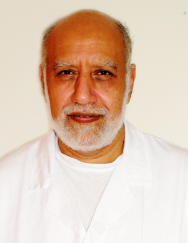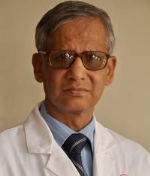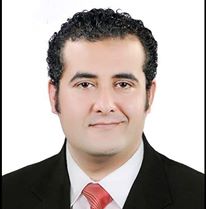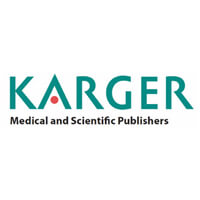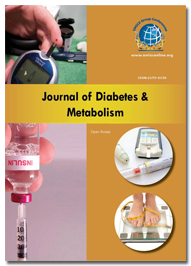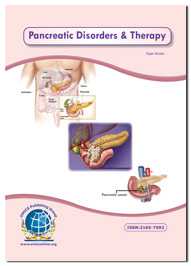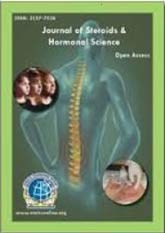Theme: Emphasis on Treatments and Exploring the Diabetic Complications
Diabetes Asia Pacific 2017
Being recognized as a world-renowned organization, ConferenceSeries Ltd takes pride to introduce the commencement of “19th Asia Pacific Diabetes Conference” from July 20-22, 2017 at Melbourne, Australia. The Annual conference aims to provide an opportunity to share knowledge, expertise along with unparalleled networking opportunities between a large number of medical and industrial professionals in this sphere.The Annual Meetings gather renowned scientists, physicians, surgeons, young researchers, industrial delegates and talented student communities in the field of diabetic medicine under a single roof where networking and global partnering happens for the acceleration of future research.Scientific Sessions include various sessions which emphasis on Diabetes Types and Symptoms, Genesis of Diabetes, Pathophysiology of diabetes , Screening of Diabetes, Technologies for the Treatment of Diabetes, Transplantations in Diabetes, Rising Focus in Diabetes Research, Hereditary of diabetes, Methodologies to insulin administration, Neuro Endocrinology, Complications in diabetes, Computerized applications in Diabetes mitigations, Management of Diabetes, Biomarker Discovery for Treatment of Diabetes.
ConferenceSeries Ltd through its Open Access Initiative is committed to making genuine and reliable contributions to the scientific community. OMICS Publishing Group hosts over 400 leading-edge peers reviewed. Open Access journals and has organized over 300 scientific conferences all over the world.
Conference series LLC welcomes all the scientists, physicians, surgeons, young researchers, industrial delegates and talented student communities in the field of diabetic medicine to attend this Diabetes Conferences, where all the aspects of diabetes will be discussed under the single roof. Diabetes Asia Pacific-2017 will be an excellent amalgamation of academia and industry as it involves every aspect of empirical and conceptual thinking in exploring new dimensions in this field. It is open to all types of research methodologies both from academia and industry.
Diabetes Asia Pacific 2017 is an international platform for presenting research about diabetes management and therapeutics, exchanging ideas about it and thus, contributes to the dissemination of knowledge in the management of the disease for the benefit of the society. Diabetes Asia Pacific 2017 is where the future of management and novel therapeutics for the disease intersects.
Diabetes has increasingly become a lifestyle-related disease as it afflicts young and old. In 2013, the value of the diabetes therapeutics market in Asia-Pacific (APAC) countries was an estimated $6.5 billion, and it is forecast to grow at a Compound Annual Growth Rate (CAGR) of 7.1% between 2013 and 2020 to $10.5 billion. The latest report states that of the four major APAC countries (China, India, Japan and Australia), China will see the fastest expansion, with a CAGR of 11.1% over the forecast period. This will be driven by an increase in the prevalent population due to urbanization, advancement in the lifestyle of the people and by expected drug launches.
Track 1: Diabetes, Types and Symptoms:
Diabetes is a number of diseases that involve problems with the hormone insulin. Normally, the pancreas (an organ behind the stomach) releases insulin to help your body store and use the sugar and fat from the food you eat. Diabetes is a lifelong disease. Normally, your body breaks down the sugars and carbohydrates you eat into a special sugar called glucose. Glucose fuels the cells in your body. But the cells need insulin, a hormone, in your bloodstream in order to take in the glucose and use it for energy. It describes a group of metabolic diseases in which the person has high blood glucose (blood sugar), either because insulin production is inadequate, or because the body's cells do not respond properly to insulin, or both. Patients with high blood sugar will typically experience frequent urination; they will become increasingly thirsty and hungry. With diabetes mellitus, your body doesn't make enough insulin; it can't use the insulin it does produce, or a combination of both. Since the cells can't take in the glucose, it builds up in your blood. High levels of blood glucose can damage the tiny blood vessels in your kidneys, heart, eyes, or nervous system. Diabetes especially if left untreated can eventually cause heart disease, stroke, kidney disease, blindness, and nerve damage to nerves in the feet.
Related Conferences: 20th World Summit on Diabetes, Nutrition, Metabolism & Medicare July 24-26,2017 Vancouver, Canada; 23rd International Conference on Herbal and Alternative Remedies for Diabetes and Endocrine Disorders November 2-4, 2017 Bangkok, Thailand; 18th European Diabetes Congress July 17-18, 2017 Lisbon, Portugal; 10th Diabetologists Conference July 24-26,2017 Vancouver, Canada; 19th Asia Pacific Diabetes Conference July 20-22, 2017 Melbourne, Australia;7th European Diabetes and Endocrinology Congress May 18-19,2017 Munich, Germany ; 16th Global Diabetes Conference & Medicare Expo March 22-23, 2017 Rome, Italy; 8th International Conference on Adrenal & Thyroid Disorders, Treatment June 12-13, 2017 Taiwan, Taipei; 13th World Congress on Diabetes October 05-06, 2017 London,UK; 12th International Conference on Endocrinology and Diabetes Summit November 06-07, 2017 Singapore.
Track 2: Screening and Treatments of Diabetes:
Blood tests are used to diagnosis diabetes and prediabetes because early in the disease type 2 diabetes may have no symptoms. All diabetes blood tests involve drawing blood at a health care provider’s office or commercial facility and sending the sample to a lab for analysis. Lab analysis of blood is needed to ensure test results are accurate. Glucose measuring devices used in a health care provider’s office, such as finger-stick devices, are not accurate enough for diagnosis but may be used as a quick indicator of high blood glucose.
Testing enables health care providers to find and treat diabetes before complications occur and to find and treat prediabetes, which can delay or prevent type 2 diabetes from developing. Diabetes is diagnosed when: symptoms are present and fasting blood test result is at or above 7.0 mmol/L or a random blood test result is at or above 11.1 mmol/L. HbA1c blood test result is ≥ 6.5% (48 mmol/mol) there have been no symptoms and two abnormal blood glucose tests (as above) on separate days.
Related Conferences: 19th Asia Pacific Diabetes Conference July 20-22, 2017 Melbourne, Australia;7th European Diabetes and Endocrinology Congress May 18-19,2017 Munich, Germany ; 16th Global Diabetes Conference & Medicare Expo March 22-23, 2017 Rome, Italy; 8th International Conference on Adrenal & Thyroid Disorders, Treatment June 12-13, 2017 Taiwan, Taipei; 13th World Congress on Diabetes October 05-06, 2017 London,UK; 12th International Conference on Endocrinology and Diabetes Summit November 06-07, 2017 Singapore;20th World Summit on Diabetes, Nutrition, Metabolism & Medicare July 24-26,2017 Vancouver, Canada; 23rd International Conference on Herbal and Alternative Remedies for Diabetes and Endocrine Disorders November 2-4, 2017 Bangkok, Thailand; 18th European Diabetes Congress July 17-18, 2017 Lisbon, Portugal; 10th Diabetologists Conference July 24-26,2017 Vancouver, Canada;
Track 3: Transplantation of Diabetes:
In pancreatic islet transplantation, cells are taken from a donor pancreas and transferred into another person. Once implanted, the new islets begin to make and release insulin. Researchers hope that islet transplantation will help people with type 1 diabetes live without daily injections of insulin. Xenotransplantation is the transplantation of living cells, tissues or organs from one species to another. Such cells, tissues or organs are called xenografts or xenotransplants. A transplant of the pancreas is usually reserved for those with serious complications. Pancreas transplants are most often done when a patient also receives a new kidney. The pancreas transplant adds little further risk in this situation and offers big benefits. However, transplant surgery is risky. Each person needs to carefully weigh the potential benefits and risks.
Related Conferences: 13th World Congress on Diabetes October 05-06, 2017 London,UK; 12th International Conference on Endocrinology and Diabetes Summit November 06-07, 2017 Singapore;20th World Summit on Diabetes, Nutrition, Metabolism & Medicare July 24-26,2017 Vancouver, Canada; 23rd International Conference on Herbal and Alternative Remedies for Diabetes and Endocrine Disorders November 2-4, 2017 Bangkok, Thailand; 18th European Diabetes Congress July 17-18, 2017 Lisbon, Portugal; 10th Diabetologists Conference July 24-26,2017 Vancouver, Canada; 19th Asia Pacific Diabetes Conference July 20-22, 2017 Melbourne, Australia;7th European Diabetes and Endocrinology Congress May 18-19,2017 Munich, Germany ; 16th Global Diabetes Conference & Medicare Expo March 22-23, 2017 Rome, Italy; 8th International Conference on Adrenal & Thyroid Disorders, Treatment June 12-13, 2017 Taiwan, Taipei;
Track 4: Complications in diabetes:
With rising numbers of diagnosed diabetics, pharmaceutical manufacturers have capitalized on the burgeoning market for diabetes therapies. Manufacturers' efforts to develop non-invasive methods of insulin delivery are set to revolutionize the insulin therapy market, while demand for oral medications is on the upswing due to a growing Type 2 diabetic population and introduction of technologically advanced therapies for battling complications associated to Type 2 Diabetes like the most prevalent Diabetes Cardiomyopathy. With human embryonic stem cells as a starting point, the scientists are for the first time able to produce, in the kind of massive quantities needed for cell transplantation and pharmaceutical purposes, human insulin-producing beta cells equivalent in most every way to normally functioning beta cells. This will certainly help people recover the prognosis of the fatal disease like diabetes.
Related Conferences: 7th European Diabetes and Endocrinology Congress May 18-19,2017 Munich, Germany ; 16th Global Diabetes Conference & Medicare Expo March 22-23, 2017 Rome, Italy; 8th International Conference on Adrenal & Thyroid Disorders, Treatment June 12-13, 2017 Taiwan, Taipei;20th World Summit on Diabetes, Nutrition, Metabolism & Medicare July 24-26,2017 Vancouver, Canada; 23rd International Conference on Herbal and Alternative Remedies for Diabetes and Endocrine Disorders November 2-4, 2017 Bangkok, Thailand; 18th European Diabetes Congress July 17-18, 2017 Lisbon, Portugal; 10th Diabetologists Conference July 24-26,2017 Vancouver, Canada; 19th Asia Pacific Diabetes Conference July 20-22, 2017 Melbourne, Australia; 13th World Congress on Diabetes October 05-06, 2017 London,UK; 12th International Conference on Endocrinology and Diabetes Summit November 06-07, 2017 Singapore.
Track 5: Emerging Focus in Diabetes Research
Dyslipidemia is one of the major risk factors for cardiovascular disease in diabetes mellitus. The characteristic features of diabetic dyslipidemia are a high plasma triglyceride concentration, low HDL cholesterol concentration and increased concentration of small dense LDL-cholesterol particles. There are many risk factors for type 2 diabetes such as age, race, pregnancy, stress, certain medications, genetics or family history, high cholesterol and obesity. However, the single best predictor of type 2 diabetes is overweight or obesity. Almost 90% of people living with type 2 diabetes are overweight or have obesity. People who are overweight or have obesity have added pressure on their body's ability to use insulin to properly control blood sugar levels, and are therefore more likely to develop diabetes.The number of diabetes cases among American adults increased by a third during the 1990s, and additional increases are expected. This rapid increase in the occurrence of diabetes is mostly attributed to the growing prevalence of obesity in the United States. The Bioinformatics/Computational Biology Service branch will provide basic capabilities to the Joslin Diabetes Center to analyze a wide range of high-throughput data. Housed on-site at the Joslin, the group and associated resources will be available to Joslin investigators and fellows who are either planning high-throughput experiments or need analysis of multi-scale data. We prospectively followed 51,552 Finnish men and women 25–74 years of age without a history of Parkinson's disease at baseline. History of diabetes and other study parameters were determined at baseline using standardized measurements. Ascertainment of the Parkinson's disease status was based on the nationwide Social Insurance Institution's drug register data. Hazard ratios of incident Parkinson's disease associated with the history of type 2 diabetes were estimated. The entire spectrum of diabesity, including all of its complications–diabetes, elevated blood sugar, blood pressure, and cholesterol–are simply downstream symptoms that result from problems with diet, lifestyle, and environmental toxins interacting with our unique genetic susceptibilities. Bariatric surgery may be an option for adults with severe obesity. Body mass index (BMI), a measure of height in relation to weight, is used to define levels of obesity. Clinically severe obesity is a BMI > 40 or a BMI > 35 with a serious health problem linked to obesity. Such health problems could be type 2 diabetes, heart disease, or severe sleep apnea (when breathing stops for short periods during sleep).
Related Conferences: 12th International Conference on Endocrinology and Diabetes Summit November 06-07, 2017 Singapore;20th World Summit on Diabetes, Nutrition, Metabolism & Medicare July 24-26,2017 Vancouver, Canada; 10th Diabetologists Conference July 24-26,2017 Vancouver, Canada; 19th Asia Pacific Diabetes Conference July 20-22, 2017 Melbourne, Australia;7th European Diabetes and Endocrinology Congress May 18-19,2017 Munich, Germany ; 16th Global Diabetes Conference & Medicare Expo March 22-23, 2017 Rome, Italy; 23rd International Conference on Herbal and Alternative Remedies for Diabetes and Endocrine Disorders November 2-4, 2017 Bangkok, Thailand; 18th European Diabetes Congress July 17-18, 2017 Lisbon, Portugal;8th International Conference on Adrenal & Thyroid Disorders, Treatment June 12-13, 2017 Taiwan, Taipei; 13th World Congress on Diabetes October 05-06, 2017 London,UK.
Track 6: Neuro Endocrinology
Neuroendocrinology is the study of the interaction between the nervous system and the endocrine system, including the biological features of the cells involved, and how they communicate. The nervous and endocrine systems often act together in a process called neuroendocrine integration, to regulate the physiological processes of the human body. Neuroendocrinology arose from the recognition that the brain, especially the hypothalamus, controls secretion of pituitary gland hormones, and has subsequently expanded to investigate numerous interconnections of the endocrine and nervous systems.
The neuroendocrine system is the mechanism by which the hypothalamus maintains homeostasis, regulating reproduction, metabolism, eating and drinking behaviour, energy utilization and blood pressure.
Related Conferences: 19th Asia Pacific Diabetes Conference July 20-22, 2017 Melbourne, Australia;7th European Diabetes and Endocrinology Congress May 18-19,2017 Munich, Germany ; 16th Global Diabetes Conference & Medicare Expo March 22-23, 2017 Rome, Italy; 23rd International Conference on Herbal and Alternative Remedies for Diabetes and Endocrine Disorders November 2-4, 2017 Bangkok, Thailand;12th International Conference on Endocrinology and Diabetes Summit November 06-07, 2017 Singapore;20th World Summit on Diabetes, Nutrition, Metabolism & Medicare July 24-26,2017 Vancouver, Canada; 10th Diabetologists Conference July 24-26,2017 Vancouver, Canada; 18th European Diabetes Congress July 17-18, 2017 Lisbon, Portugal;8th International Conference on Adrenal & Thyroid Disorders, Treatment June 12-13, 2017 Taiwan, Taipei; 13th World Congress on Diabetes October 05-06, 2017 London,UK.
Track 7: Management of Diabetes.
Modification of adverse lifestyle factors is an important aspect of the management of all types of diabetes. In particular, appropriate management of cardiovascular risk factors such as smoking, physical inactivity and poor diet is important for the prevention of macro vascular disease. Micro vascular complications may also be affected by adverse lifestyle factors, eg smoking. However, helping patients to modify certain behaviors should take account of other factors such as the patient’s willingness to change, their perception of their diabetes, and factors which may be indirectly related to their diabetes, such as depression and adverse effects on quality of life. This section of the guideline has been divided into the following areas: delivery of lifestyle interventions, structured education, self-monitoring of glycemic control, and the specific areas of smoking, obesity, and physical activity, healthy eating and alcohol.
Related Conferences: 10th Diabetologists Conference July 24-26,2017 Vancouver, Canada; 19th Asia Pacific Diabetes Conference July 20-22, 2017 Melbourne, Australia;7th European Diabetes and Endocrinology Congress May 18-19,2017 Munich, Germany ; 16th Global Diabetes Conference & Medicare Expo March 22-23, 2017 Rome, Italy; 8th International Conference on Adrenal & Thyroid Disorders, Treatment June 12-13, 2017 Taiwan, Taipei;13th World Congress on Diabetes October 05-06, 2017 London,UK; 12th International Conference on Endocrinology and Diabetes Summit November 06-07, 2017 Singapore;20th World Summit on Diabetes, Nutrition, Metabolism & Medicare July 24-26,2017 Vancouver, Canada; 23rd International Conference on Herbal and Alternative Remedies for Diabetes and Endocrine Disorders November 2-4, 2017 Bangkok, Thailand; 18th European Diabetes Congress July 17-18, 2017 Lisbon, Portugal.
Track 8: Auxiliary Treatments of Diabetes:
Diabetes is out of control in the U.S., with incidence rates as high as 15-20% in some population groups (e.g., the elderly, blacks, Hispanics, and Native Americans), and with substantial increases in all age and racial groups in the past few years. Chinese medicine, relying mainly on herb formulas, but also on acupuncture, has been utilized extensively in East Asia to reduce blood sugar in persons with diabetes, especially those with the most common type (non-insulin dependent diabetes mellitus, NIDDM). Based on extensive laboratory and clinical evaluations, about 20 herbs have emerged as primary candidates for treatment. These herbs have been utilized in a small number of traditional formulations for centuries, both for treating obvious diabetes and for other disorders that produce similar symptoms. Acupuncturists have identified about 20 points on the body that appear to be effective in lowering blood sugar; typically, a dozen of these points are selected for treatment at one time. Although more clinical research needs to be done to demonstrate the level of effectiveness of the herbs and acupuncture, these methods of therapy are currently available in many locations in the Western cultures as a result of the increasing acceptance of Chinese medicine during the past three decades.
Related Conferences: 18th European Diabetes Congress July 17-18, 2017 Lisbon, Portugal;8th International Conference on Adrenal & Thyroid Disorders, Treatment June 12-13, 2017 Taiwan, Taipei;19th Asia Pacific Diabetes Conference July 20-22, 2017 Melbourne, Australia;7th European Diabetes and Endocrinology Congress May 18-19,2017 Munich, Germany ; 16th Global Diabetes Conference & Medicare Expo March 22-23, 2017 Rome, Italy; 23rd International Conference on Herbal and Alternative Remedies for Diabetes and Endocrine Disorders November 2-4, 2017 Bangkok, Thailand;12th International Conference on Endocrinology and Diabetes Summit November 06-07, 2017 Singapore;20th World Summit on Diabetes, Nutrition, Metabolism & Medicare July 24-26,2017 Vancouver, Canada; 10th Diabetologists Conference July 24-26,2017 Vancouver, Canada; 13th World Congress on Diabetes October 05-06, 2017 London,UK.
Track 9: Computerized applications in Diabetes mitigations.
Diabetes is characterized by altered metabolism of key molecules and regulatory pathways. The phenotypic expression of diabetes and associated complications encompasses complex interactions between genetic, environmental, and tissue-specific factors that require an integrated understanding of perturbations in the network of genes, proteins, and metabolites. Metabolomics attempts to systematically identify and quantitate small molecule metabolites from biological systems. The recent rapid development of a variety of analytical platforms based on mass spectrometry and nuclear magnetic resonance have enabled identification of complex metabolic phenotypes. Continued development of bioinformatics and analytical strategies has facilitated the discovery of causal links in understanding the pathophysiology of diabetes and its complications. Here, we summarize the metabolomics workflow, including analytical, statistical, and computational tools, highlight recent applications of metabolomics in diabetes research, and discuss the challenges in the field.
Related Conferences: 7th European Diabetes and Endocrinology Congress May 18-19,2017 Munich, Germany ; 16th Global Diabetes Conference & Medicare Expo March 22-23, 2017 Rome, Italy;18th European Diabetes Congress July 17-18, 2017 Lisbon, Portugal;8th International Conference on Adrenal & Thyroid Disorders, Treatment June 12-13, 2017 Taiwan, Taipei;19th Asia Pacific Diabetes Conference July 20-22, 2017 Melbourne, Australia;23rd International Conference on Herbal and Alternative Remedies for Diabetes and Endocrine Disorders November 2-4, 2017 Bangkok, Thailand;12th International Conference on Endocrinology and Diabetes Summit November 06-07, 2017 Singapore;20th World Summit on Diabetes, Nutrition, Metabolism & Medicare July 24-26,2017 Vancouver, Canada; 10th Diabetologists Conference July 24-26,2017 Vancouver, Canada; 13th World Congress on Diabetes October 05-06, 2017 London,UK.
Track 10: Advancement of New Drug/Biomarker Discovery for Treatment of Diabetes:
Biomarkers can be defined as “a characteristic that is objectively measured and evaluated as an indicator of normal biologic processes, pathogenic processes, or pharmacologic responses to a therapeutic intervention. Biomarkers play an integral part in conducting clinical trials and treating patients. In most instances, they help medical practitioners, researchers, and regulatory officials make well-informed, scientifically sound decisions. More efficient discovery and use of biomarkers in the development of antidiabetes drugs will depend on advancing our understanding of the pathogenesis of diabetes and especially its macrovascular complications. Methodological advances from other fields, especially oncology, are beginning to pave the way toward improved models of diabetes pathogenesis and biomarker discovery.
Related Conferences: 10th Diabetologists Conference July 24-26,2017 Vancouver, Canada;7th European Diabetes and Endocrinology Congress May 18-19,2017 Munich, Germany ; 16th Global Diabetes Conference & Medicare Expo March 22-23, 2017 Rome, Italy;18th European Diabetes Congress July 17-18, 2017 Lisbon, Portugal;8th International Conference on Adrenal & Thyroid Disorders, Treatment June 12-13, 2017 Taiwan, Taipei;19th Asia Pacific Diabetes Conference July 20-22, 2017 Melbourne, Australia;23rd International Conference on Herbal and Alternative Remedies for Diabetes and Endocrine Disorders November 2-4, 2017 Bangkok, Thailand;12th International Conference on Endocrinology and Diabetes Summit November 06-07, 2017 Singapore;20th World Summit on Diabetes, Nutrition, Metabolism & Medicare July 24-26,2017 Vancouver, Canada;13th World Congress on Diabetes October 05-06, 2017 London,UK.
Track 11: Technologies for the Treatment of Diabetes
Treatment of diabetes, like most areas of medicine, has changed considerably over the years as a result of technological advances. From the discovery, purification, and mass production of insulin to the development of less painful ways to deliver it, the lives of people with diabetes have been improved — and sometimes greatly extended — by both diabetes-focused research and broader improvements in medical care.Although it can be difficult to predict the impact of an emerging technology, there are several exciting developments on the horizon that may soon significantly change how people with diabetes receive medical care or manage the condition on their own. At least one relatively new innovation, the continuous glucose monitor, is already changing the daily routine for some.
Related Conferences: 23rd International Conference on Herbal and Alternative Remedies for Diabetes and Endocrine Disorders November 2-4, 2017 Bangkok, Thailand;13th World Congress on Diabetes October 05-06, 2017 London,UK; 12th International Conference on Endocrinology and Diabetes Summit November 06-07, 2017 Singapore;20th World Summit on Diabetes, Nutrition, Metabolism & Medicare July 24-26,2017 Vancouver, Canada; 18th European Diabetes Congress July 17-18, 2017 Lisbon, Portugal; 10th Diabetologists Conference July 24-26,2017 Vancouver, Canada; 19th Asia Pacific Diabetes Conference July 20-22, 2017 Melbourne, Australia;7th European Diabetes and Endocrinology Congress May 18-19,2017 Munich, Germany ; 16th Global Diabetes Conference & Medicare Expo March 22-23, 2017 Rome, Italy; 8th International Conference on Adrenal & Thyroid Disorders, Treatment June 12-13, 2017 Taiwan, Taipei.
19th Asia Pacific Diabetes Conference is going to be held during July 20-22, 2017 in Melbourne, Australia. Diabetes Asia pacific conference gathers renowned scientists, physicians, surgeons, young researchers, industrial delegates and talented student communities in the field of diabetic medicine under a single roof where networking and global partnering happens for the acceleration of future research.
The conference throws light on thought provoking topics and recent research in the field of Diabetic Medications like, Type 1 Diabetes- Therapies and treatments, Type 2 Diabetes- Therapies and treatments, Diabetic Neuropathy-Treatment and Care, Management of Diabetic Heart Diseases, Management of Diabetic Kidney Diseases, Clinical Diabetic Therapeutics & Management, Islet Biology and Beta cell targeting, Computational Approaches for Diabetes, and many more. The organizing committee is gearing up for an exciting and informative conference program including plenary lectures, symposia, workshops on a variety of topics, poster presentations and various programs for participants from all over the world. We invite you to join us at the Diabetes Asia Pacific 2017 International Conference, where you are sure to have a meaningful experience with scholars from around the world. All the Organizing Committee Members of the Diabetes Asia Pacific-2017 International Conference look forward to meeting you in Melbourne, Australia.
ConferenceSeries Ltd welcomes all the scientists, physicians, surgeons, young researchers, industrial delegates and talented student communities in the field of diabetic medicine to attend this Diabetes Conference, where all the aspects of diabetes will be discussed under the single roof. Diabetes Asia Pacific-2017 will be an excellent amalgamation of academia and industry as it involves every aspect of empirical and conceptual thinking in exploring new dimensions in this field. It is open to all types of research methodologies both from academia and industry.
Diabetes Asia pacific 2017 is an international platform for presenting research about diabetes management and therapeutics, exchanging ideas about it and thus, contributing to the dissemination of knowledge in the management of the disease for the benefit of the society. Diabetes Asia Pacific-2017 is where the future of management and novel therapeutics for the disease intersects
For more details please visit- http://www.diabetesexpo.com/asiapacific/
Importance & Scope
Diabetes has increasingly become a lifestyle-related disease as it afflicts young and old. According to WHO Diabetes was estimated to affect 371 million people till the end of 2011in US. Whereas, new figures indicate that the number of people living with diabetes is expected to rise from 371 million in 2012 to 552 million by 2030. This indicates an urgent alarm for its management. As the number of patients grows across the globe, there has never been a stronger and more urgent need for therapeutic measures that arrest the growth of the disease and alleviate its secondary manifestations. In Type 1 diabetes total β-cell loss occurs. In Type 2 diabetes, partial β-cell loss occurs before diagnosis, and the progressive β-cell loss during the life of the patient increases the severity of the disease. This addresses novel therapies for these deficiencies in the clinical and preclinical evaluation.
Many International Conferences and Diabetic therapies meetings/ symposium and workshops have been organized on different topics related to the risk factors related to diabetes across the globe such as glucose tolerability conference, diabetes stem cell cure conference, anti-diabetic agents meetings, obesity conferences, weight loss conferences, Islet transplantation international conference, glucose variability conferences etc. Besides that many international events such as diabetes alternative medicines events, insulin pump therapy events, pancreatic dysfunction events, recombinant approaches for diabetes events etc. Targeted Therapy Events have been also taking place in order to find a weapon against fatal diseases like diabetic foot, insulin resistance, glucose tolerability, obesity and to discuss the role of diabetes in cardiovascular diseases, kidney diseases, risk of cancer and intolerability to cure the wound which will gives a better insight about the associated causes and disease portfolio.
Why Melbourne(Australia)?
An estimated 917,000 (5.4%) Australian adults aged 18 years and over had diabetes in 2011–12, based on self-reported and measured data, from the ABS 2011–12 Australian Health Survey. This includes people with type 1 diabetes, type 2 diabetes, and type unknown but excludes gestational diabetes.Approximately 1% of the adult population did not report that they had diabetes, which may indicate they were unaware that they had the condition, compared with 4% who were aware of it and reported their diabetes.
Between 1989–90 and 2011–12, the age-standardised prevalence of diabetes more than doubled, from 1.5% to 4.2% of Australians. However, the age-standardised prevalence of diabetes remained relatively stable between 2007–08 (4.1%) and 2011–12 (4.2%). This means that the proportion of the total Australian population with diabetes was relatively unchanged over this period. But the total number of people with diabetes continued to increase, from around 898,800 in 2007–08 to around 999,000 in 2011–12.
Hospitals Associated with Diabetes Research
Diabetes being one of the most fatal, most fast-growing diseases in the world with the maximum elevation rate in the incidence has best hospitals across the globe. Diabetes has maximum sufferings in China, USA and in the Asia pacific region giving a reason to have the best management. Best Endocrinology hospitals as per the area are as follows:
Best Diabetes hospitals in Australia:
Over 29.1 million people (9.3 percent) of the Australia population currently has diabetes, reports the Centers for Disease Control, and it is an epidemic that seems to be growing. Not only is diabetes detrimental to one’s health, but it is also a costly disease to treat. The total estimated cost of diagnosed diabetes in 2012 was $245 billion, according to the ADA, including $176 billion in direct medical costs and $69 billion in reduced productivity.
- Royal North Shore Hospital – St Leonards
- Ryde Hospital – Eastwood
- Hornsby Ku-ring-gai Hospital – Hornsby
- Manly Hospital – Manly
- Mona Vale Hospital – Mona Vale
- Mater Hospital
- Sydney Adventist Hospital
- David Berry Hospital – Berry
- Port Kembla Hospital – Warrawong
- Prince of Wales Hospital – Randwick
The high prevalence of the disease requires the best management and prevention obscuring the best hospitals around the world, especially in the highly prevalent areas.
Associations Associated with Diabetes Research
To encourage, educate, update and train registered medical practitioners, dieticians, qualified nurses and other appropriately qualified paramedical personnel in the field of Diabetes various well-known societies/associations are working across the globe to efficiently prevent and combat the fatal disease.
Major Diabetes Associations around the Globe
- Diabetes Indian Association
- Canadian Diabetes Association
- International Diabetes Federation
- Diabetes Australia
- Austrian Diabetes Association
- Diabetes UK
- Diabetes South Africa
- Spanish Diabetes Society (Spain)
- Swedish Diabetes Association
- Korean Diabetes Association
Major Diabetes Associations in Australia
- Diabetes Australia
- Austrian Diabetes Association
- Dietitians Association of Australia
- Diabetes Association Brisbane
- Canadian Diabetes Association in Sydney
-
Juvenile Diabetes Research Foundation
Universities Associated with Diabetes Research
There are around 5000 medical universities in the world out of which approximately 3000 universities focusing on Endocrinology and Diabetes researches.
Top Medical Universities for Diabetes in the world:
- Albany Medical College
- Baylor College of Medicine
- Creighton University School of Medicine
- Dartmouth Medical School
- Florida International University College of Medicine
- Georgetown University School of Medicine
- Howard University College of Medicine
- Harvard Medical School
- Johns Hopkins University School of Medicine
-
Pennsylvania State University College of Medicine
Companies Associated with Diabetic products and their funding
Glance at Market of Diabetes
Global Market for Diabetes Therapies & Diagnostics is to be worth $51.2 billion in 2015. The diabetes market, consisting mainly of Type 1 and Type 2 diabetes, is large and growing significantly.
According to a new technical market research report, 'Diabetes Therapies and Diagnostics' from BCC Research, the global market value for diabetes therapies and diagnostics is an estimated $38 billion in 2010, but is expected to increase to $51.2 billion in 2015, for a 5-year compound annual growth rate (CAGR) of 6.1 percent. The largest segment of the market, insulin products (including administration devices), is estimated to be worth $16.4 billion in 2010 and is expected to increase at a CAGR of 6.1 per cent to reach $22 billion in 2015.
Monitoring devices and accessories, the second-largest segment, is expected to reach $14.1 billion in 2015, after increasing from the 2010 estimate of $11.3 billion at a CAGR of 4.5 per cent. The fastest-growing segment, oral hypoglycemic drugs, is projected to increase at a CAGR of 8 per cent, increasing from an estimated $10.3 billion in 2010 to $15.1 billion in 2015.
Projections: Growth by next 5-10 years
According to a new technical market research report, 'Diabetes Therapies and Diagnostics' from BCC Research, the global market value for diabetes therapies and diagnostics is an estimated $38 billion in 2010, but is expected to increase to $51.2 billion in 2015, for a 5-year compound annual growth rate (CAGR) of 6.1 percent.
Conference Highlights
- Diabetes Types and Symptoms
- Screening of Diabetes
- Transplantations in Diabetes
- Complications in diabetes
- Rising Focus in Diabetes Research
- Neuro Endocrinology
- Management of Diabetes
- Computerised applications in Diabetes mitigations
- Biomarker Discovery for Treatment of Diabetes
- Technologies for the Treatment Of Diabetes
- Genesis of Diabetes
- Pathophysiology of diabetes
- Hereditary of diabetes
- Methodologies to insulin administration
- Diabetes and associated Disorders
To share your views and research, please click here to register for the Conference.
To Collaborate Scientific Professionals around the World
| Conference Date | July 20-22, 2017 | ||
| Sponsors & Exhibitors |
|
||
| Speaker Opportunity Closed | Day 1 | Day 2 | Day 3 |
| Poster Opportunity Closed | Click Here to View | ||
Useful Links
Special Issues
All accepted abstracts will be published in respective Our International Journals.
- Journal of Diabetes & Metabolism
- Pancreatic Disorders & Therapy
- Journal of Steroids & Hormonal Science
Abstracts will be provided with Digital Object Identifier by




